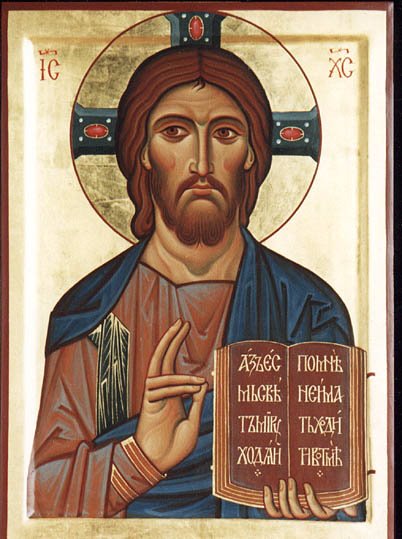Recently, frescoes dated from the 4th century were discovered in a catacomb underneath a modern office building in Rome. Amongst the frescoes are what Vatican archeologists believe to be the oldest known portraits of the Apostles Paul, Andrew, and John, as well as another portrait of Peter that is consistent with other, earlier, iconographic images of the Apostle. Consequently, questions have been raised concerning the accuracy of images created 250 years after the death of their subjects.
This discovery has caused me to ponder, again, Epistemology, the branch of Philosophy concerned with the nature and scope (limitations) of knowledge. Epistemology considers questions such as: What is knowledge? How is knowledge acquired? What can people know? How do we know what we know? These are not ridiculous questions as some are want to think, but they bear considerably upon our worldviews, history, science, religion, and, well, just about everything!
Consider the debates that occur regularly concerning the interpretation of the Constitution of the United States. Typically, two viewpoints prevail, though there are several others: Those holding to an Originalist philosophy interpret the Constitution conservatively, seeking to determine the author’s original intent. Others maintain that the Constitution must be interpreted in the context of other decisions. This philosophy of interpretation may be called Contextualism or Dynamic Evolution. In but a little over two hundred years there has become considerable disagreement and debate concerning what the Constitution means and what the intent of its authors was. How do we know what the authors meant? How do we know the interpretation they intended or would desire for today? Does it matter? These are Epistemological questions in the context of United States history.
Recent conversations I have had with unbelievers and atheists have born the importance of such questions about the Christian faith. Unbelievers ask: How do you know that God is three-in-one? How do you know the Bible is true? How do you know God exists? If God does exists, how do you know He has the ability to change things in the world? If God is God, why must I believe in Jesus? These are not ridiculous questions, but they deserve to be answered by Christians (1 Peter 3:15).
What questions such as these, in addition to the discovery of the portraits of the Apostles, have caused me to contemplate these past few days is the importance of tradition in conjunction with faith and reason. I tend to share the Foundationalist views of St. Augustine and Christian philosopher Alvin Plantinga that all of our beliefs rest ultimately on beliefs accepted by faith. In regard to the portraits of the Apostles, we cannot know if the frescoes accurately depict the actual Apostles. However, both their antiquity and their consistency with earlier iconography, along with the tradition of the Church handed down in the writings of the early Church Fathers and other Christian traditions, lend credence to the belief that they are rather close approximations of the actual Apostles.
Ultimately, perhaps, we cannot know the answers to many questions that unbelievers might ask us; we accept them as truth by faith – faith informed by reason and evidence historical, biblical, experiential, etc. But is this not how any belief is justified, experientially? The Preacher to the Hebrews defines faith as “the assurance of things hoped for, the conviction of things not seen” (Hebrews 11:1). The Preacher uses the words assurance and conviction to describe faith; these are strong words that most would count as knowledge. This is to say that faith is no weak, unfounded belief in something that may or may not exist, but faith is objective – this is to say, you do not simply have faith, but you have faith in something. Tradition is the shared faith of a community – a family, a tribe, a nation, a congregation, a denomination, a religion, etc. Tradition serves objective faith, but it must never be the object of faith.
The questions asked by unbelievers and atheists should be answered in accord with faith and tradition, acknowledging that it is a matter of faith – reasonable faith. It is not the job of a Christian to convert anyone – that’s the Holy Spirit’s work! – but it is the job of a Christian to confess your faith before men (Matthew 10:32). There is good reason, drawn from experience and tradition, grounded in faith, to believe that the frescoes in the Roman catacomb are fairly accurate depictions of the Apostles. Can we know for certain? Perhaps not. Can we know anything for certain? We believe…., in something…., and that is faith, religious or otherwise. And faith in God, Father, Son, and Holy Spirit is faith that is assured and convicted, it is a confession. “Everyone therefore who shall confess Me before men, I will also confess him before My Father who is in heaven. But whoever shall deny Me before men, I will also deny him before My Father who is in heaven” (Matthew 10:32-33)
In Christ’s service, Pastor Ellingworth
.jpg)

